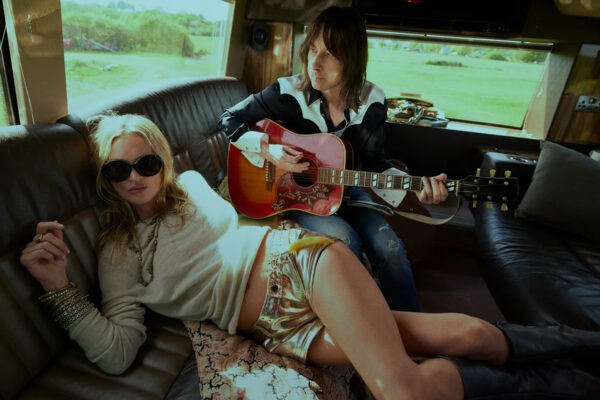
The main topic of conversation in the USP studio last week has been the Netflix adaptation of David Nicholls’ best seller One day.
Is it true to the book (IMO yes), is it better than the film adaptation (100%) and are we in love with Leo Woodall (if we have a pulse – Hell yes)? We have discussed it daily, listened to the sound track and even been party to a little bit of BTS gossip (we have contacts). The series release coincided with our new season macro trends brainstorm and one thing led to another in the way that it does when we are all together and it got us thinking about modern romance and the idea of yearning.
Yearning is defined as a ‘feeling of wanting something or someone very much’, and the media have tapped into this by releasing a whole host of yearn based movies. Saltburn (longing for wealth, but actually not really), Past Lives (nostalgia for something we know isn’t quite right), All of Us Strangers (the desire for human connection) and even Barbie (yearning for an ideal world where everyone is equal). According to Dominique Sisley writing for Dazed, One Day not only generates yearning through the agonisingly long meet cute between Dexter and Emma, there is also longing for ‘free university, warm carefree bodies raving to N-Joi, getting on the property ladder in Belsize Park, on barista wages. Even the misogyny of 90s TV (‘Britain’s ugliest girlfriend’) is presented as so laughably dumb and outrageous that you almost feel wistful about it’.

The Digital Fairy think the social media concept of #yearnposting or #yearnbait is ‘sad, melancholic, yearnful, comforting, and achingly mundane. On Instagram, popular accounts like @gendersauce, @nimity.online, @hammuraber, and @chicfeast.art post text and image slideshows that can cut right through you. Everything is sacred. Everything is mundane, can read as either glib, corny, or devastating. But the comment sections on all these accounts seem to indicate that we want to be devastated (in a good way)’.
Gen Z could potentially see wistfulness, mundanity and even boredom as a novelty, as they have had every waking moment since birth filled with music, images, online chat and activities. Although they (quite rightly) complain that the climate is screwed, that they will never be able to get on the housing market and they are overwhelmed by technology, everything is right there for the taking – dating, shopping, eating, listening, watching, chatting – at the touch of a button. Boredom is not an option when there are clothes to order, box sets to watch and TikTok to scroll through. And often without even leaving your bed.

The Scots word hurkle-durkle which means “to lie in bed or lounge about when one should be up and about,” is trending on social media and The New York Times thinks this is time well spent. Leaning into lounging is appealing because we crave agency, said Eleanor McGlinchey, a sleep psychologist at Manhattan Therapy Collective. The earliest reference to hurkle-durkle is from an 1808 version of the Scottish dictionary, which highlights how term has been reinterpreted for a new generation. BT (before technology) lying in bed was quite frankly really boring. Mundanity and yearning were a way of life for Gen X and Boomers who had to go out if they wanted entertainment of any kind, and ‘taking to ones bed’ was for people with an illness or inability to deal with life.
Katherine May wrote in her lovely book Wintering: The Power of Rest and Retreat in Difficult Times, that in hard times it’s more than appropriate to slow down and take to our bed when we are too busy. She says “We don’t always get the opportunity, but lounging in bed is a lovely way to make a slow start to the day, rather than the hurried one we’re so used to. I know it has associations with being lazy and unproductive, but we all need to learn to value rest and recovery in our busy lives.”
Mandwhile, Dr. Heshmat PHD who writes for Psychology Today told Refinery29, “Without boredom, humans would not have the taste for adventure and novelty-seeking that makes us who we are — intelligent, curious, and constantly seeking out the next thing.”
What if we just did nothing, didn’t give everything a # and share it online, stopped filling our lives with activities and opportunities to expand our minds and didn’t start yet another project (that we know we won’t finish – or is that just me?). Maybe in order to effectively yearn, one also has to bored and find space to do nothing, which in turn provides opportunities for self reflection and creativity- or am I am just being a hopeless romantic?






